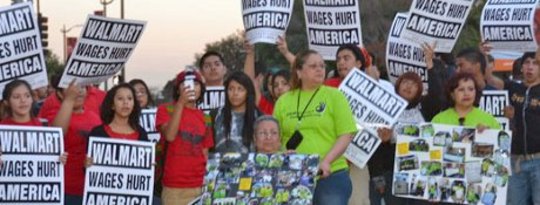
Instead of crazed shoppers, Walmart can expect massive protests outside its doors the day after Thanksgiving, known as "Black Friday." In a Nov. 22 press conference, members of OURWalmart announced that workers throughout the U.S. are planning strikes, walkouts, and demonstrations at 1,500 Walmart locations - up from 1,200 in 2012.
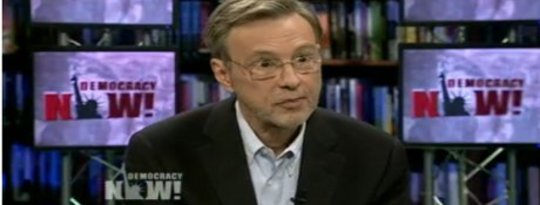
Could the United States face another economic collapse? Writer and broadcaster Thom Hartmann looks back at past financial crises and comes to a startling conclusion. "As long as you don’t look too closely at our nation, things seem under control — the United States looks whole … but when you go around to the 'dark back side' of the nation, you see the shocking truth.
- By Abby Quillen

Growing up in the 1950s, Judy Wicks shunned the stereotypes of how girls should behave and longed to play baseball with the boys. When she became a businesswoman and entrepreneur, she recognized that her feminine desire to nurture was an asset in bringing collaboration to business and creating a more caring economy...
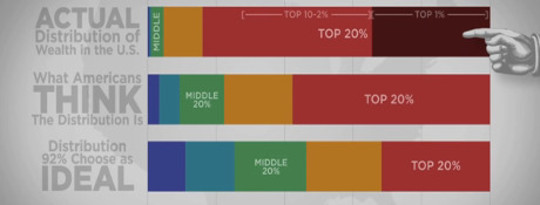
Infographics on the distribution of wealth in America, highlighting both the inequality and the difference between our perception of inequality and the actual numbers. The reality is often not what we think it is.
Buy land, advised Mark Twain, because, as the punch line goes, they ain’t making any more of it. Fast forward to 2013 and that advice, as a look at prices for farmland shows, seems as prescient as ever. As any farmer will readily tell you, the agriculture business has had a tough run. Agriculture was once an economic mainstay. Turn back the clock to 1950 and the sector employed nearly a fifth of Canada’s work force.

The Obama administration makes good on its promise to give direct care workers the same rights as nearly everyone else—and to top it all off, California follows suit.

During a visit to New York City for the United Nations General Assembly, Ecuador’s Foreign Minister Ricardo Patiño joins us to discuss his government’s involvement in two closely watched environmental legal battles. An Ecuadorean court has ordered the oil giant Chevron to pay $19 billion to indigenous and rural Ecuadoreans for the dumping of as much as 18.5 billion gallons of highly toxic waste sludge into the rainforest.

This week, Reich joins Moyers & Company to discuss a new documentary film, Inequality for All, Reich, who Time magazine called one of the best cabinet secretaries of the 20th century, stars in this dynamic, witty and entertaining
- By Robert Reich

Yesterday a Walmart spokesman criticized the petition I’ve been circulating that asks Walmart (and McDonalds) to pay their employees at least $15 an hour. Walmart’s spokesman told the Huffington Post that my petition fails to mention that Walmart is a major job creator and that it promotes some of its employees.

A 2012 report from the Pew Research Center, “The Lost Decade of the Middle Class,” surveyed nearly 1,300 Americans who identified with this income tier and found pervasive gloominess: 85% said it was “more difficult” for “middle class people to maintain their standard of living” compared to a decade ago.
- By Robert Reich
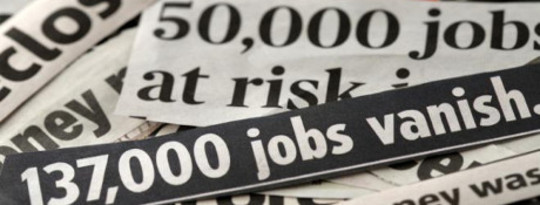
Congress is in recess, but you’d hardly know it. This has been the most do-nothing, gridlocked Congress in decades. But the recess at least offers a pause in the ongoing partisan fighting that’s sure to resume in a few weeks. It also offers an opportunity to step back and ask ourselves what’s really at stake.
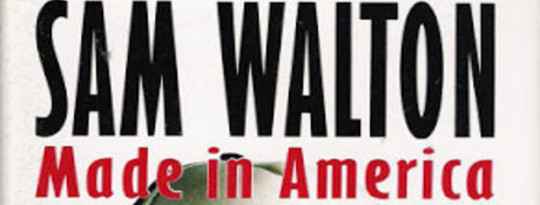
In Washington, D.C., Walmart has threatened to cancel plans to build three new stores and possibly close three more stores due to open if the city passes an ordinance mandating that the retailer pay a "living wage" of $12.50 an hour. In other words, the type of person who shops at Walmart today has less money to shop at Walmart -- because of, among other things, Walmart.

On May 31st, president Barack Obama strolled into the bright sunlight of the Rose Garden, covered from head to toe in the slime and ooze of the Benghazi and IRS scandals. In a Karl Rove-ian masterstroke, he simply pretended they weren't there and changed the subject. The federal government has made it easier than ever to borrow money for higher education - saddling a generation with crushing debts and inflating a bubble that could bring down the economy.

Want to see a public school system in its death throes? Look no further than Philadelphia. There, the school district is facing end times, with teachers, parents and students staring into the abyss created by a state intent on destroying public education. On Thursday the city of Philadelphia announced that it would be borrowing $50 million to give the district, just so it can open schools as planned on Sept. 9
- By Robert Reich

Why is the nation more bitterly divided today than it’s been in eighty years? Why is there more anger, vituperation, and political polarization now than even during Joe McCarthy’s anti-communist witch hunts of the 1950s, the tempestuous struggle for civil rights in the 1960s, the divisive Vietnam war, or the Watergate scandal?

Then one day in April, Feusner ripped open his royalty envelope to find that while his wells were still producing the same amount of gas, the gusher of cash had slowed. His eyes cascaded down the page to his monthly balance at the bottom: $1,690. Chesapeake Energy, the company that drilled his wells, was withholding almost 90 percent of Feusner's share of the income to cover unspecified "gathering" expenses and it wasn't explaining why.

In this clip from his radio show, Thom Hartmann gives a pretty good explanation why the American Dream is disappearing and why with great wealth comes great poverty. Thom says billionaires are taking over our commons through privatization and its not a good thing.
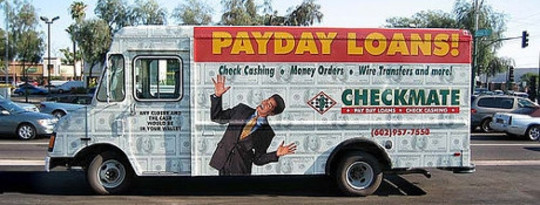
In 2008, payday lenders suffered a major defeat when the Ohio legislature banned high-cost loans. That same year, they lost again when they dumped more than $20 million into an effort to roll back the law: The public voted against it by nearly two-to-one. But five years later, hundreds of payday loan stores still operate in Ohio, charging annual rates that can approach 700 percent.
- By Amy Goodman

As President Obama heads to Phoenix today to tout the "housing recovery," journalist Laura Gottesdiener examines the devastating legacy of the foreclosure crisis and how much of the so-called recovery is a result of large private equity firms buying up hundreds of thousands of foreclosed homes.

Under civil forfeiture, Americans who haven’t been charged with wrongdoing can be stripped of their cash, cars, and even homes. Is that all we’re losing? On a bright Thursday afternoon in 2007, Jennifer Boatright, a waitress at a Houston bar-and-grill, drove with her two young sons and her boyfriend...

The U.S. unemployment rate in July was 7.4 percent, the Bureau of Labor Statistics reported, down 0.1 percent from the month before. A separate survey reported businesses claimed to create a net of 162,000 new jobs last month. That left the U.S. with 11.5 million people officially unemployed, 263,000 fewer than in June. But the official jobless rate understates the problem.

Research shows that destroying jobs is an essential component of the retail giant’s anti-worker business model. Does Walmart create jobs? That question is at the heart of the debate currently raging over its plans to open stores in Washington, DC.
- By Robert Reich
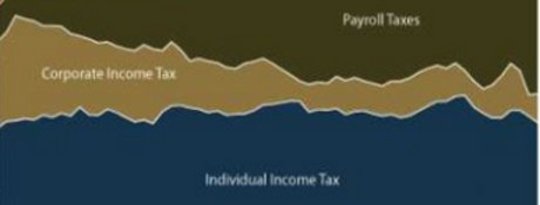
Corporations want corporate tax reduction to be the centerpiece of “tax reform" come the fall. The President has already signaled a willingness to sign on in return for more infrastructure investment. But the arguments for corporate tax reduction are specious.














